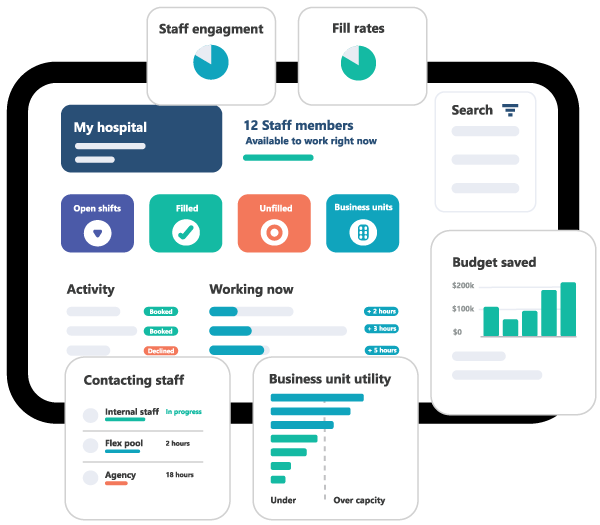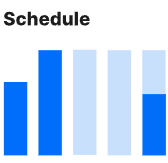Management of Float Pools
A float pool is a group of staff who can be deployed to different units within a healthcare facility as needed. The can be nurses that are not assigned to a specific department but are instead available to fill staffing gaps across various units, such as emergency rooms, intensive care units, or surgical wards. This model allows for greater flexibility in staffing and ensures that patient care remains uninterrupted during times of high demand or staff shortages.

The Role of Float Pool Nurses
Float pool nurses are versatile professionals capable of adapting to different clinical environments. Their responsibilities mirror those of regular staff nurses, including administering medications, monitoring patient vitals, assisting with procedures, and educating patients and their families. However, float pool nurses must also quickly acclimate to the specific protocols and team dynamics of each unit they enter, making adaptability and strong communication skills crucial for success in this role.
Benefits of Float Pools
For Healthcare Facilities:
- Staffing Flexibility: Float pools provide a ready reserve of qualified nurses who can be deployed to units experiencing high patient volumes or unexpected staff absences.
- Cost-Effective: By utilizing float pool nurses, facilities can reduce reliance on external staffing agencies, leading to cost savings.
- Improved Patient Care: Ensuring adequate staffing levels across all units helps maintain high standards of patient care and safety.
For Nurses:
- Diverse Clinical Experience: Working in various departments allows float pool nurses to broaden their skill sets and gain exposure to different patient populations.
- Flexible Scheduling: Float pool positions often offer more flexible hours, which can be appealing to nurses seeking better work-life balance.
- Professional Growth: The varied experiences gained through float pool assignments can improve a nurse’s resume and open doors to advanced roles within the healthcare system


Differences Between Float Pool Nurses and Regular Staff
While both float pool nurses and regular staff nurses provide direct patient care, there are key differences between the two roles:
- Assignment: Regular staff nurses are typically assigned to a specific unit, whereas float pool nurses rotate among various departments as needed.
- Scheduling: Float pool nurses often have more flexible schedules, including options for part-time or per diem work, while regular staff nurses usually have fixed shifts.
- Training: Float pool nurses must be proficient in the protocols and procedures of multiple units, requiring a broader base of knowledge and adaptability.
Implementing Float Pools - Challenges and Solutions


Scheduling
Coordinating float pool assignments requires careful planning to match nurse availability with unit needs.


Training
Ensuring that float pool nurses are adequately trained for multiple departments demands significant resources.


Communication
Effective communication between float pool nurses and unit staff is essential to maintain continuity of care.
Float Pool Management Using CliniShift
CliniShift is designed to streamline the management of float pools within healthcare facilities. By leveraging technology, CliniShift offers several features that enhance the efficiency and effectiveness of float pool operations:
Real-Time Scheduling
CliniShift allows managers to post available shifts in real-time, enabling float pool nurses to view and accept assignments instantly. This dynamic scheduling capability guarantees that staffing gaps are filled promptly, maintaining optimal patient care levels.
Credential Verification
The platform’s credentialling feature helps keep track of competencies of float pool nurses, making sure that only qualified individuals are assigned to specific units. This feature reduces administrative burden and increases compliance with regulatory standards.
Communication Tools
CliniShift includes built-in messaging and Broadcast feature facilitate seamless communication between managers and float pool nurses. These tools help coordinate assignments, provide updates, and address any issues that may arise during shifts.
Data Analytics
The software offers robust analytics capabilities, allowing administrators to track staffing patterns, extract reports for payroll, and make data-driven decisions to optimize float pool utilization.
FAQs
What is a float pool in healthcare?
How does a float pool benefit hospitals and healthcare facilities?
What qualifications do float pool nurses need?
How do float pool assignments differ from permanent nursing roles?
What are the challenges of managing a float pool?
How does CliniShift support float pool management?
- Achieve fantastic results
Great metrics in healthcare staffing are essential. By optimising resource allocation and complying with regulations, you can maintain a satisfied and productive workforce.
Shift conversion
Boast highly consistent shift fill rates by intelligently knowing when to contact staff.
Reduction in calls
Cut out the need for time consuming phone, email, text and message correspondence.
Time saved
Reduce the workload on your busy staffing operators.






